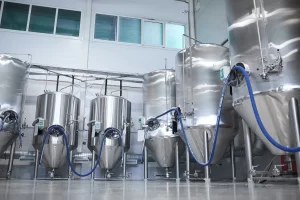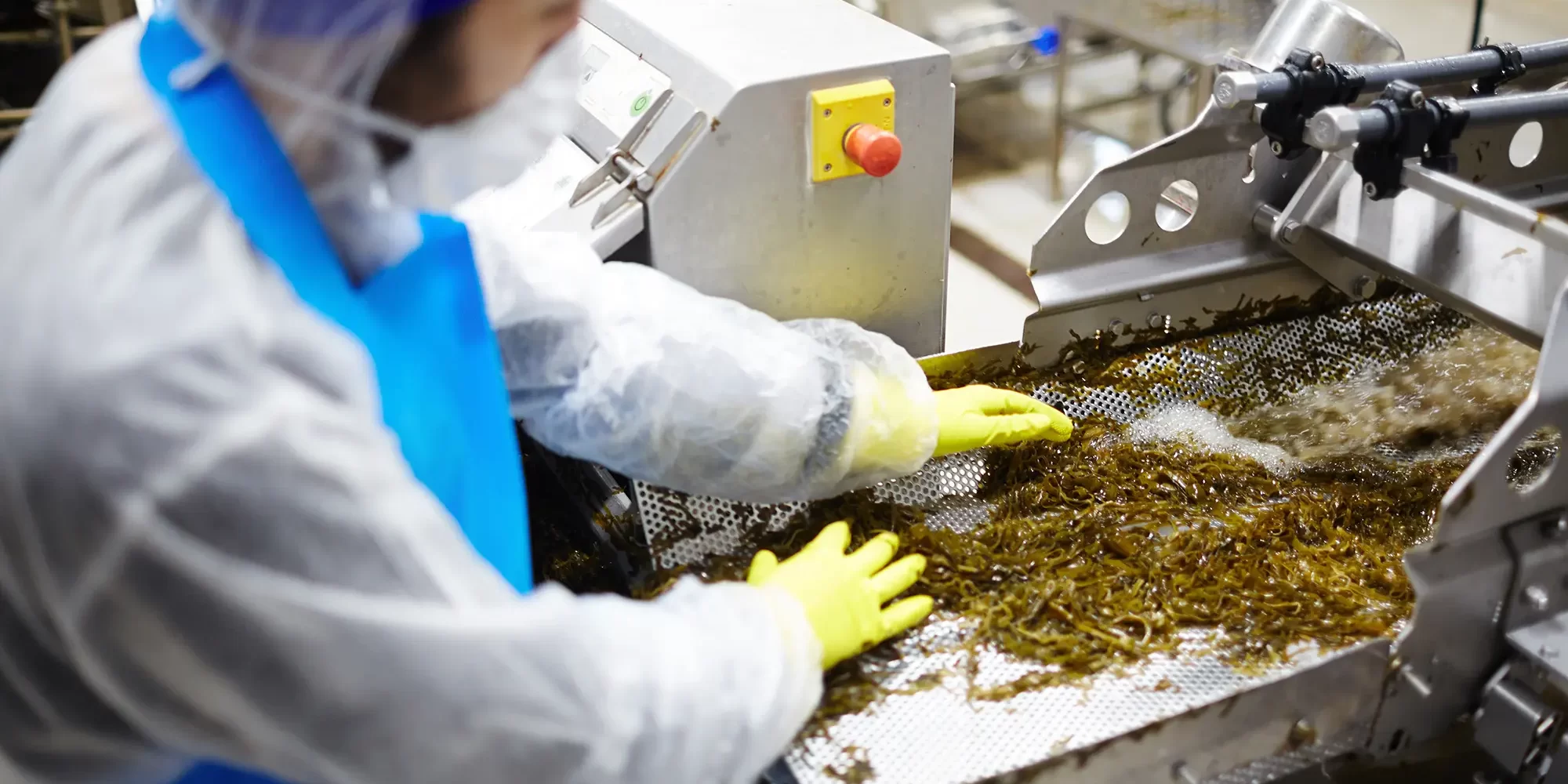Maintaining strict hygiene standards is essential to ensuring product safety and regulatory compliance in the food processing industry.
One powerful tool for achieving this is Chlorine Dioxide (ClO₂), a versatile and highly effective disinfectant used to treat water and surfaces in food production facilities.
This innovative solution supports the food industry’s efforts to uphold safety standards while minimising environmental impact.
The Importance of Hygiene in Food Processing
 Food safety regulations, such as the UK Food Standards Agency (FSA) requirements and international standards like HACCP (Hazard Analysis and Critical Control Points), mandate rigorous hygiene protocols. Contaminated water or surfaces can introduce pathogens, compromise food safety, and damage brand reputation. Chlorine Dioxide has become an indispensable ally in ensuring compliance and maintaining consumer confidence.
Food safety regulations, such as the UK Food Standards Agency (FSA) requirements and international standards like HACCP (Hazard Analysis and Critical Control Points), mandate rigorous hygiene protocols. Contaminated water or surfaces can introduce pathogens, compromise food safety, and damage brand reputation. Chlorine Dioxide has become an indispensable ally in ensuring compliance and maintaining consumer confidence.
How Chlorine Dioxide Works in Food Processing
Chlorine Dioxide is a powerful oxidising agent that works by breaking down the cell walls of bacteria, viruses, and fungi. Unlike traditional chlorine treatments, ClO₂ does not form harmful by-products such as trihalomethanes (THMs) or haloacetic acids (HAAs), making it safer for use in sensitive food environments.
Key Applications:
- Disinfection of Water Systems:
ClO₂ is used to disinfect water used in food washing, rinsing, and production processes. It eliminates harmful pathogens, such as Salmonella, Listeria, and E. coli, ensuring the safety of processed food. - Surface Sanitation:
Food processing equipment, conveyors, and storage containers require thorough disinfection to prevent cross-contamination. Chlorine Dioxide effectively removes biofilm and inactivates pathogens, reducing the risk of contamination. - Odour Control:
In environments prone to odours from organic material breakdown, ClO₂ neutralises odour-causing compounds, ensuring a pleasant and sanitary working environment. - Post-Harvest Processing:
Chlorine Dioxide is particularly effective in washing raw produce, extending shelf life by reducing microbial load and preserving product quality.
Advantages of Chlorine Dioxide in Food Processing
- Broad-Spectrum Disinfection:
Chlorine Dioxide eliminates a wide range of microorganisms, including bacteria, viruses, fungi, and spores, making it highly effective across various applications. - Eco-Friendly:
ClO₂ decomposes into harmless by-products, aligning with environmental sustainability goals and reducing the impact on wastewater treatment systems. - Non-Corrosive:
Unlike traditional chlorine treatments, Chlorine Dioxide is less corrosive, extending the lifespan of equipment and reducing maintenance costs. - Effective Across pH Levels:
ClO₂ maintains efficacy across a broad pH range, offering consistent performance even in challenging conditions. - Minimal Residual Impact:
Chlorine Dioxide leaves minimal residue on food and surfaces, ensuring compliance with food safety standards and reducing the risk of altering product taste or quality.
Compliance with Food Safety Regulations
Chlorine Dioxide meets international standards for food safety and water treatment, including compliance with EU Biocidal Products Regulation (BPR) and Food Standards Agency guidelines. Its use ensures food processing plants meet stringent hygiene requirements while protecting consumer health.
Chlorine Dioxide is a game-changer in food processing, offering a safe, effective, and environmentally friendly solution for water and surface disinfection. By integrating ClO₂ into hygiene protocols, food processing plants can enhance product safety, extend shelf life, and maintain compliance with food safety regulations. For more information on how Scotmas can help you optimise your food processing hygiene, contact us today.






